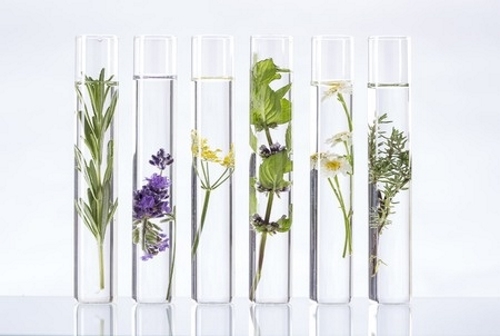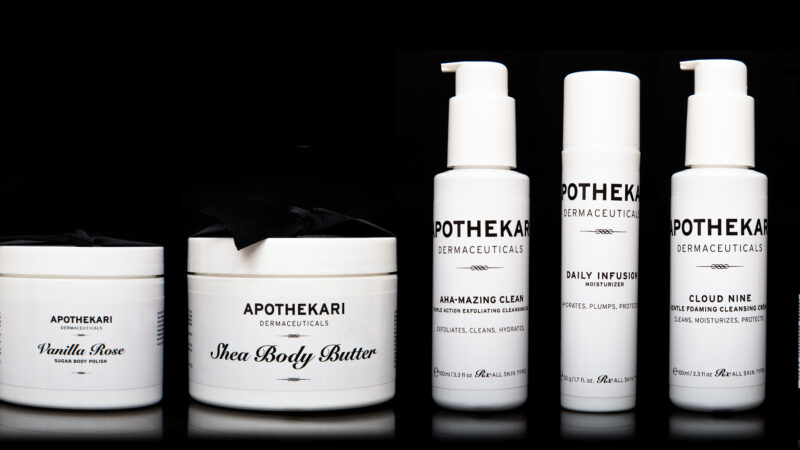Natural Skin Care – is it better for you?
Customers are demanding safer products and all of us in the skin care industry support this. Yet, many companies would have us believe that only natural and/or organic ingredients are better and safer for the skin. The truth, however, is when it comes to personal care products, “pure,” “natural” or “organic” have no legal meaning. And although many natural skin care products or organic ingredients are purported to be better or safer, they may actually be bad for skin!
The marketing machine is a big one and whether cosmetics companies are intentionally misleading customers or whether they really believe some of the things they say, is hard to know. Many companies sell products with ingredients that aren’t really natural or contain natural ingredients that are a problem for skin. By the same token, there are good synthetic ingredients that aren’t a problem for skin and some that are. It’s important to look beyond the marketing claims.
Natural skin care products, often made with plant derived ingredients, aren’t bad for skin. In fact, they can offer many benefits. When they are incorporated into treatments such as facial oils, moisturizers and cleansers, they can be very effective. In more targeted treatments, however, synthetics often have the upper hand. And that is because your skin is able to more easily utilize a chemical in its active state (retinaldehyde, niacinamide, l-ascorbic acid) than it is of breaking down a whole plant extract into its individual components.
At Apothekari, we formulate with a range of both synthetic and natural ingredients to deliver the best possible outcomes for your skin. Although sometimes it is, here are 5 reasons why a natural product may not always be your best choice:
- ‘Organic’ ingredients or natural skin care products don’t necessarily possess greater inherent safety than another chemically identical version of the same ingredient. In addition to purity concerns, natural extracts are less regulated than synthetic ingredients. The FDA regulates the concentration of synthetic ingredients in skin care products to minimize the potential for irritation, inflammation, and allergic reactions. Natural extracts, however, are generally permitted in concentrations up to whatever the manufacturer feels comfortable with.
- ‘Natural’ skin care products may be harder to preserve against contamination and mold than synthetic versions.
- Organic seals of approval on cosmetics should NOT be taken as proof of health benefits or efficacy. Even the USDA Organic seal is a marketing program, not a safety program. (Case in point, a chocolate cake made with organic ingredients is still not the best nutritional choice for anyone).
- Many natural and organic ingredients (and synthetics aren’t exempt from this either) can be harsh, abrasive and potentially sensitizing. Essential oils are one example. Sure, they smell great but they can be highly problematic when applied to the face.
- Whole plant extracts are not always better than concentrated ingredients. When you apply a whole plant extract, you rely on your body and your skin to break it down to its active components. This is dependent on the health of your skin, your genetic make-up, etc. When you apply chemical ingredients – retinol, niacinamide, vitamin c – to skin, they are readily available in their active state. Just as important, is that chemical ingredients are often supported by numerous, well-controlled studies to demonstrate their efficacy. This is not always the case for natural, whole plant extracts.
I’m not ‘natural’ skin care bashing here, but trying to set the record straight. Natural ingredients aren’t necessarily safer or better than synthetic ones. And synthetic ones aren’t necessarily bad. The truth is that there are both natural and synthetic ingredients that are safe and effective for skin and you shouldn’t be misled to believe that this isn’t the case.
At Apothekari, we rely on science to formulate our products with a combination of purified synthetics — retinoids, vitamins C and E, niacinamide, alpha hydroxy acids — as well as botanicals such as aloe juice, powdered bamboo, shea butter and plant extracts (horse chestnut bark, olive leaf, willow herb flower). Our goal is to create products that are safe and effective. And that’s one thing we won’t compromise on!




